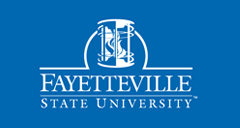Abstract
The use of interactive learning methods is considered crucial in equipping university students with critical skills. This could successfully deal with, and address issues encountered in real-world contexts. It has been noted that most first-year university students often face challenges adjusting to university life due to their background. The research methodology utilized in this study was qualitative, as it was deemed appropriate for the research objectives. A case study design was employed to investigate the issue comprehensively. A purposive sample of eight participants was selected. Thematic analysis was employed as the method of data analysis. The study's findings suggest that the use of interactive learning approaches has a beneficial effect on fostering active engagement among students. Interacting with educational resources and peers improves students' critical and analytical thinking capacity.
Furthermore, the study's results suggest that implementing interactive learning methods facilitates collaborative learning among students. This approach enables students to collaborate with their peers to solve problems effectively. The study's findings indicate that implementing interactive learning methods promotes active student engagement and fosters student autonomy in the learning process. Moreover, interactive pedagogies increase student participation, facilitating cognitive development and critical thinking skills. The study recommended that instructors be empowered to employ suitable interactive approaches to augment the development of students' critical thinking skills.
Recommended Citation
Agyeman, Nana Yaw B. and Aphane, Venessa Vela Ms
(2025)
"Enhancing Critical Thinking Through Interactive Learning Approaches for First-Year University Students,"
Journal of Research Initiatives: Vol. 9:
Iss.
1, Article 11.
Available at:
https://digitalcommons.uncfsu.edu/jri/vol9/iss1/11
Included in
Adult and Continuing Education Administration Commons, Community College Leadership Commons, Curriculum and Instruction Commons, Higher Education Commons, Higher Education Administration Commons, Higher Education and Teaching Commons
